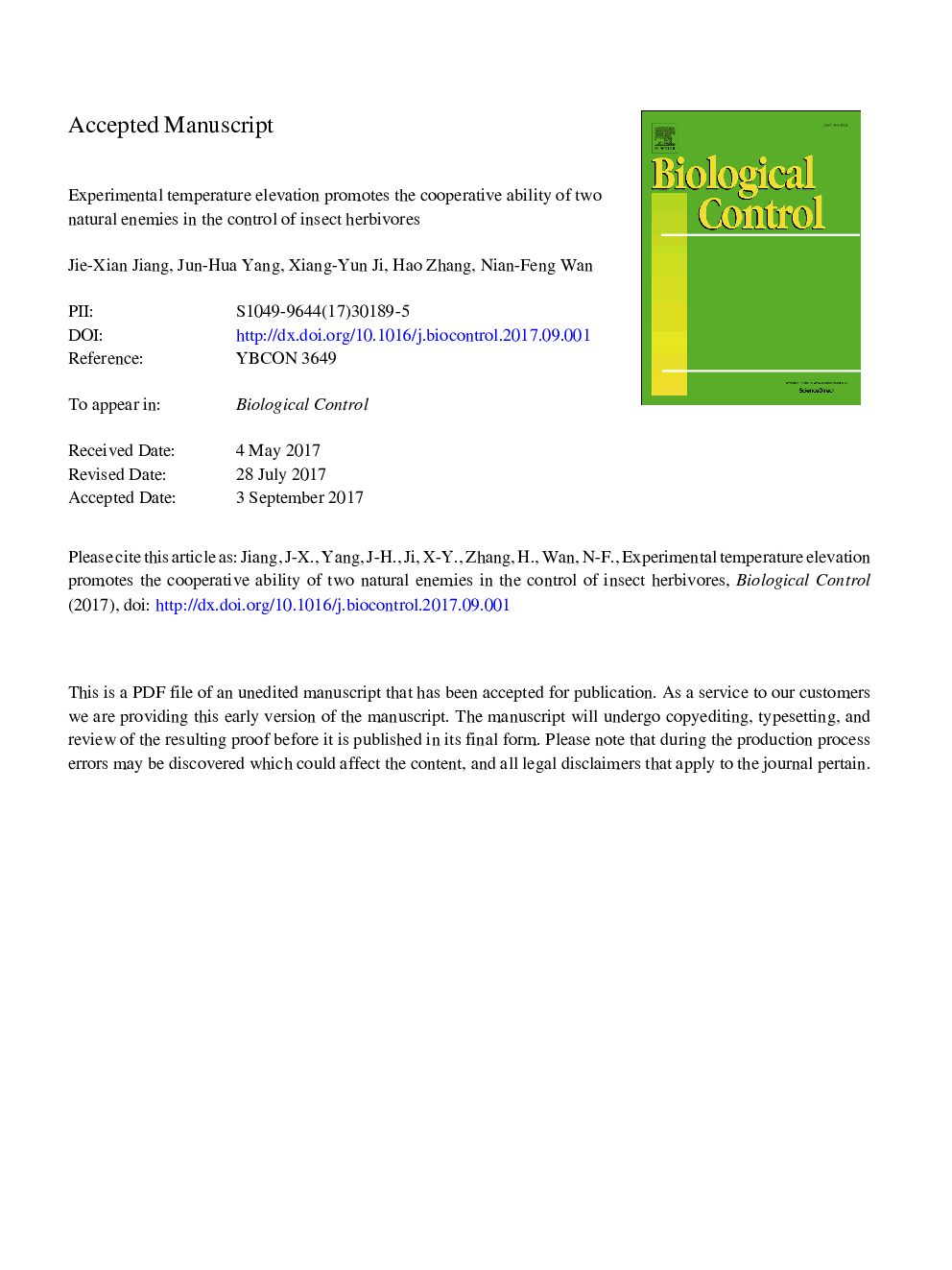| Article ID | Journal | Published Year | Pages | File Type |
|---|---|---|---|---|
| 8877745 | Biological Control | 2018 | 51 Pages |
Abstract
One of the major drivers of global change is temperature elevation, which plays an important role in ecological interactions among species. However, it is still not known whether experimental temperature elevation promotes or inhibits the coexistence of multiple natural enemies of insect herbivores. We hypothesize that increased temperatures will favor synergisms among natural enemies. We examined the effects of temperature increases on an insect herbivore, beet armyworm (Spodoptera exigua) and its two most important natural enemy groups - parasitic wasps (Microplitis pallidipes) and entomoviruses (nucleopolyhedrovirus, NPV). Specifically, we examined the discriminatory response of parasitoids to NPV-infected and non-infected herbivores in the face of rising temperatures. Over a range of increasing temperature (19, 23, 27, 31 and 35 °C) and two virus dosages (5.33 Ã 107 and 5.33 Ã 105 OB·mLâ1) at five different time periods (24, 48, 72, 84 and 96 h after treatment), both searching time and attacking time of parasitoids, to both NPV-infected and non-infected caterpillars, decreased with increasing temperatures. Consequently, the number of hosts attacked and the parasitism rates achieved by parasitoids increased. The percentage of first attacks by parasitoids that occurred in NPV-infected herbivores decreased with increasing temperature, with an increasing proportion of first attacks by parasitoids occurring, consequently, in uninfected caterpillars. Our study reveals that increased temperatures will make natural enemies more synergistic in the control of insect herbivores, and suggests that global warming might promote the coexistence of multiple natural enemies.
Keywords
Related Topics
Life Sciences
Agricultural and Biological Sciences
Agronomy and Crop Science
Authors
Jie-Xian Jiang, Jun-Hua Yang, Xiang-Yun Ji, Hao Zhang, Nian-Feng Wan,
